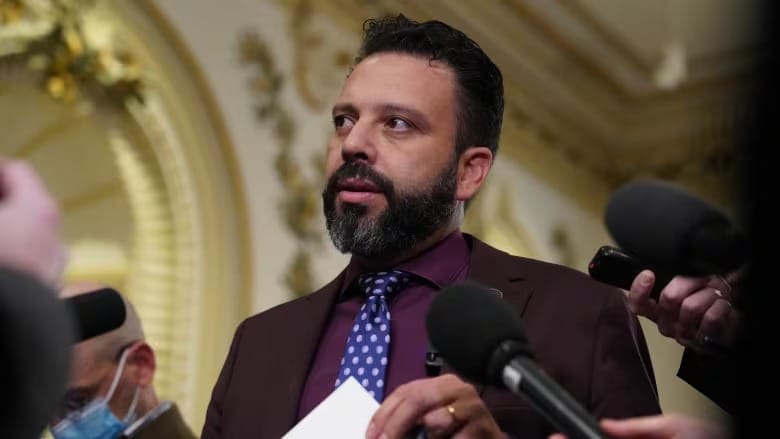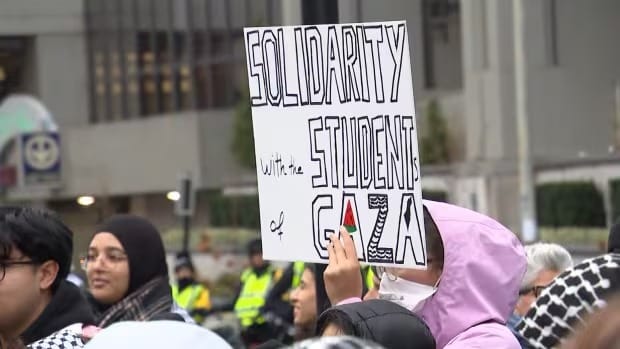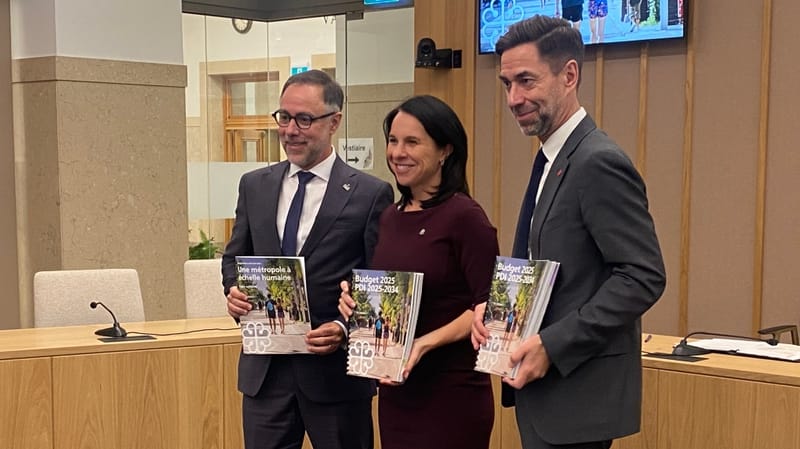It's not easy to talk about racism in Quebec. Just ask Haroun Bouazzi
Controversy after MNA's speech shows Quebec politicians' struggle — or unwillingness — to talk about race

The past week has been turbulent in Quebec politics, with discussions on racism taking center stage and sparking significant debate.
Haroun Bouazzi, a Montreal Member of the National Assembly (MNA) representing the left-wing party Québec Solidaire, drew widespread criticism following a speech earlier this month at an event organized by a community group supporting immigrants of Maghrebi origin. In his speech, Bouazzi addressed the concept of racism and described race as a social construct that assigns specific traits to groups, often painting them as inferior or dangerous.
“There are races that are constructed by society, which create a category to which we assign a culture that is, by definition, dangerous and inferior,” Bouazzi said. He went on to claim that this kind of "othering" is present in the National Assembly. “God knows I see this in the National Assembly every day—the construction of this other, this other who is Maghrebi, who is Muslim, who is Black, who is Indigenous.”
These remarks drew sharp rebukes from across the political spectrum, including from leaders within his own party, who called the comments clumsy, exaggerated, and divisive. Critics argued that Bouazzi’s speech accused fellow MNAs and the institution itself of racism.
What Is "Othering"?
Bouazzi's reference to "othering" describes a sociological concept where groups are categorized based on perceived differences, such as race, religion, or sexual orientation, and subsequently deemed inferior. Scholars argue that this practice can result in discrimination and social exclusion. John A. Powell, a professor at the University of California, Berkeley, notes that "othering" is often perpetuated through political and media narratives rather than personal interactions.
While Bouazzi’s critics interpreted his comments as labeling the National Assembly and its members as racist, sociologists like Eduardo Bonilla-Silva emphasize that systemic racism often stems from processes rather than individual intentions.
Despite calls from many Quebec politicians, including Premier François Legault, to dismiss claims of systemic racism in the province, incidents like the death of Joyce Echaquan have intensified calls for deeper reflection on these issues.
A Polarizing Debate
Bouazzi faced intense backlash, including during media interviews. In one instance, a journalist remarked, “It’s not just a few columnists, Mr. Bouazzi; everyone is against you.” Bouazzi later apologized for parts of his speech, admitting that his claims about two ministers blaming immigration for systemic issues were clumsily phrased. However, he stood by his broader message about "othering" in the legislature.
Academics like Keita Christophe of McGill University argue that discussions on racism often trigger defensive reactions. “People are too quick to say, ‘I’m not racist,’ distancing themselves from the issue without reflecting on the systemic nature of inequality,” Christophe said. He likened the cumulative effects of microaggressions to repeated mosquito bites, which, over time, cause significant harm.
Wider Implications
The controversy mirrors Bouazzi’s own argument about "othering." His speech, perceived as a threat to social harmony, left him isolated in the legislature. In a twist of irony, Bouazzi himself became "the other."
Outside the legislature, discussions about racism continue to resonate. Advocacy groups, like one that recently launched a campaign addressing political rhetoric around immigrants, highlight the persistence of "othering" in public discourse. Examples include claims linking immigration to the housing crisis and the controversy at a Montreal school over teacher suspensions tied to secularism policies.
Christophe suggests that Bouazzi’s speech, while imperfectly worded, reflected real issues. “I feel like we’re missing some curiosity and going straight to the condemnation,” he said.
Ultimately, the heated reactions to Bouazzi’s comments underscore the difficulty of addressing racism in Quebec politics—a topic that often sparks defensiveness rather than meaningful dialogue.





